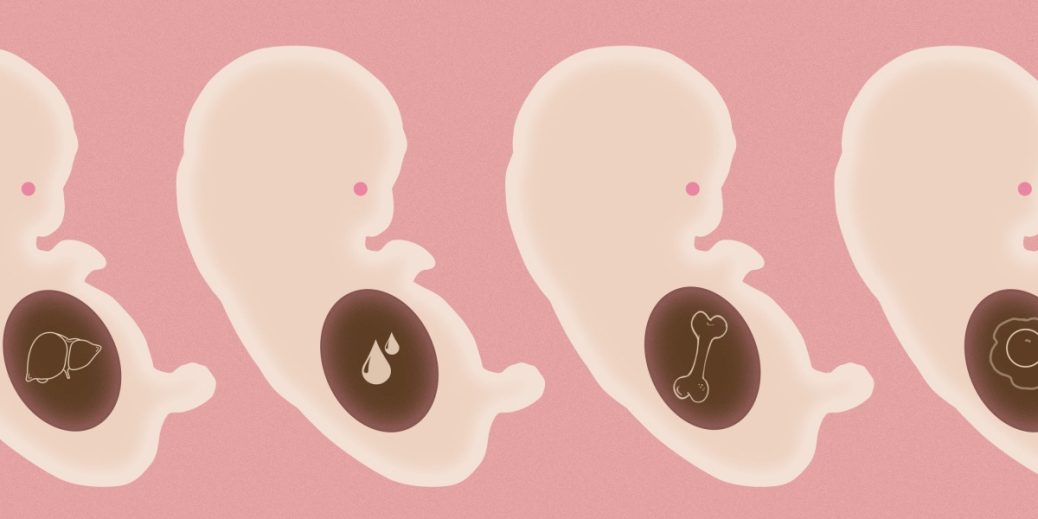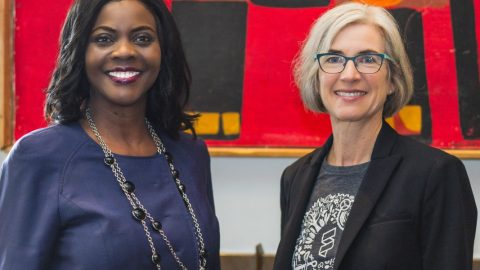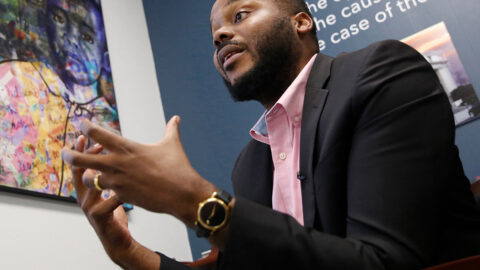
In a search for novel forms of longevity medicine, a biotech company based in Israel says it intends to create embryo-stage versions of people in order to harvest tissues for use in transplant treatments.
The company, Renewal Bio, is pursuing recent advances in stem-cell technology and artificial wombs, demonstrated by Jacob Hanna, a biologist at the Weizmann Institute of Science in Rehovot. Earlier this week, Hanna showed that starting with mouse stem cells, his lab could form highly realistic-looking mouse embryos and keep them growing in a mechanical womb for several days until they developed beating hearts, flowing blood, and cranial folds.
It’s the first time such an advanced embryo has been mimicked without sperm, eggs, or even a uterus. Now Hanna has set his sights on extending the technology to humans—he’s already experimenting with human cells and hopes to eventually produce artificial models of human embryos. “We view the embryo as the best 3D bio printer,” he says. Read the full story.
—Antonio Regalado
Automated techniques could make it easier to develop AI
Machine-learning researchers have to make many decisions when designing new models, meaning that complex models end up being designed by human intuition, rather than systematically. A growing field called automated machine learning, or autoML, aims to eliminate that guesswork, allowing algorithms to take over the decision making, which could both simplify the process and make machine learning more accessible.
Big Tech is paying attention. Companies like Amazon and Google already offer low-code machine-learning tools that take advantage of autoML techniques, and computer scientists are excited by the notion of being able to simply specify a problem, before tasking the computer with figuring it out. But researchers have a lot of work to do before autoML can be deployed more widely. Read the full story.
—Tammy Xu
The must-reads
I’ve combed the internet to find you today’s most fun/important/scary/fascinating stories about technology.
1 The US has declared monkeypox a public health emergency
It has surpassed 7,100 cases, more than any other country. (WSJ $)
+ Many queer men have been unable to get vaccinated. (Vox)
+ Some people will be at risk of contracting both monkeypox and covid. (The Atlantic $)
+ There’s still no evidence to suggest that monkeypox has become more virulent. (Slate)
+ Everything you need to know about the monkeypox vaccines. (MIT Technology Review)
2 Alex Jones must pay $4 million to the parents of a Sandy Hook victim
The conspiracy theorist is finally facing consequences for calling the massacre a hoax. (BBC)
+ The jury could choose to award further damages, too. (Buzzfeed News)
3 Elon Musk has accused Twitter of fraud
He also claims he was “hoodwinked” into signing the purchase agreement. (Bloomberg $)
+ A tool used to assess Twitter bots reportedly flagged Musk’s own account as one. (FT $)
+ Twitter’s lawyers aren’t holding back. (The Verge)
+ Meanwhile, Musk predicts the US will weather a “mild recession” for 18 months. (Insider)
4 The UK’s cost of living crisis has birthed a wave of scams
Which feels particularly cruel, if sadly inevitable. (FT $)
5 Your brain appears to unlock new realities when you die 🧠
The new dimensions of reality some dying people experience are not the same as hallucinating. (Neo.Life)
6 We’re buying fewer video games than we used to
With less disposable income, shoppers are cutting down on non-essentials. (WP $)
7 The animals we know least about are most at risk of extinction
Many are already believed to have died out before we could discover them. (Motherboard)
+ Machine learning could help identify the species most at risk. (The Verge)
+ Understanding how species mate is crucial to ensuring their future safety. (Knowable Magazine)
8 The internet is obsessed with tracking the celebrities’ flights
Aviation enthusiasts are revealing the data that the rich and famous would rather keep secret. (The Guardian)
9 Hollywood is getting better at portraying young, online lives
Being Extremely Online is no longer the preserve of the loner. (The Atlantic $)
+ How the next generation is reshaping political discourse. (MIT Technology Review)
10 TikTok can’t get enough of young farmers 🐄🐏
Their rural lives are striking a chord. (FT $)
+ Elsewhere on TikTok, users are paying money to wake people up. (Wired $)




Recent Comments